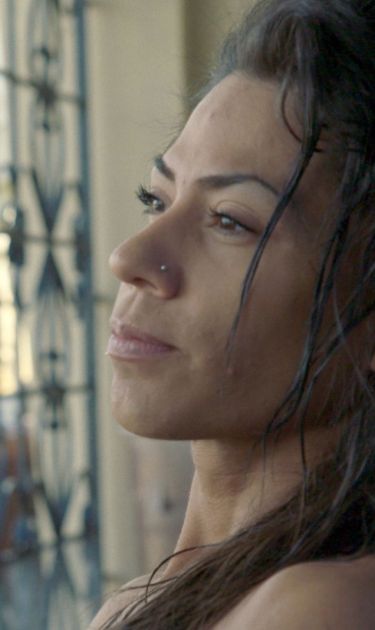It was June 12, 2016, when a gunman killed 49 people and wounded 53 more at Pulse, a gay nightclub in Orlando, Florida. Since that tragic night, Jeannette Feliciano, a survivor of the mass shooting, found it difficult to trust anyone to tell the story from her perspective.
Even when award-winning filmmaker Maris Curran (While I Yet Live) met her at a “Love Has No Labels” event and began asking her questions about what her life has been like post-Pulse, Feliciano, a queer, Puerto Rican, single mother, knew she wasn’t ready to share that kind of emotion with a stranger.
“I had gone through something that was so traumatic, so my trust was definitely not there,” Feliciano told Remezcla during a recent interview. “I’m a Puerto Rican woman, and a lot of times, we just look at somebody at face value, and that’s what I did with her. We couldn’t break the barrier.”
That barrier, however, began to fracture as time went by and Feliciano and Curran became friends. Feliciano no longer saw her as a filmmaker, but someone who she was able to connect with through deep and meaningful conversations.

“I came to realize that … this was another human being who had some of the same traumas. Even if the person is from a different background, it takes the tension completely down, and you’re able to relate to them.”
Through the friendship and trust they built together, Feliciano and Curran collaborated on the documentary Jeannette. The film, which was shot over five years, tells Feliciano’s personal story of healing and captures her struggles with survivor’s guilt and motherhood and emphasizes the importance of being vulnerable but also finding strength when facing trauma and loss.
“Making this film has definitely been a part of the healing process,” Feliciano said. “It’s amazing how I could see the changes within my face as I was watching the film. When you experience trauma in your life, there’s always new levels to healing.”

In Jeannette, these levels of healing also included documenting Feliciano’s passion for exercise and her competitive nature as a bodybuilder. While her strength as a leader inside the gym is evident, Feliciano wants viewers to know that sometimes there is heartache underneath that tough exterior.
“I’m human just like everyone else,” Feliciano said. “A lot of people within my community always saw me as this strong person. They don’t see that vulnerable side because you have to keep your strength for everyone. But I have my moments in the gym where I cry and when I get angry. I tell people, work on your health and fitness because it’s therapeutic. It brings a sense of calmness to your life.”
Feliciano needs that calmness in her life today more than ever. She said she still suffers from survivor’s guilt and doesn’t believe it’s something she will ever overcome because she “was the one who invited everybody to come out that night.” This year, Feliciano returned to Pulse alongside other survivors for the first time since the shooting nine years ago.
“That was extremely difficult, but I knew that I needed that for my healing process,” she said. “I needed that sense of closure.”
Jeannette Feliciano added, “Showing vulnerability and showing that we can be human is one of the most important aspects to healing. You don’t have to be that tough person every day.”
Jeannette is currently available to watch on all major streaming platforms, including AppleTV+ and Prime Video.
